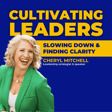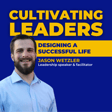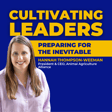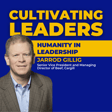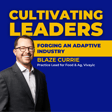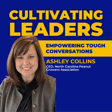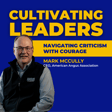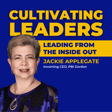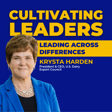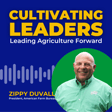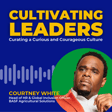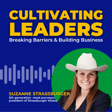
You Might Be A Bad Manager with Katie Ervin
What if the reason you're struggling as a leader isn’t your fault?
Dr. Katie Ervin—author, founder, and creator of the Catalyst Workplace Model—joins The Cultivating Leaders Podcast for an honest conversation about what it really takes to lead without preparation, “being kind,” and bad managers. Through her career, Katie has learned the importance of vulnerability, feedback, and honesty.
Katie gets real about:
- Leaders are Often Set Up to Fail: People are often promoted into leadership roles without the proper tools, support, or training
- Culture is Changed Through People-centered Solutions: advocating for directly addressing interpersonal or cultural issues rather than making vague company-wide announcements
- Feedback and Accountability are Kind: don’t avoid the truth to spare feelings when the truth can lead to development
Katie offers grounded, practical advice on becoming a leader, not just a manager.
Connect with Katie
- Connect on LinkedIn
- Visit her website - Here
- Check out here book - Here
Connect with AFA
- Follow us on LinkedIn
- Follow us on Instagram
- Like us on Facebook
- Follow us on TikTok
- Visit our Website
About The Cultivating Leaders Podcast
Real stories. Practical advice. Tangible growth. Join The Cultivating Leaders Podcast, brought to you by Agriculture Future of America, as we explore what it takes to lead in food, agriculture, and beyond. Whether you’re just starting out or leading at the highest level, this podcast is your go-to resource for leadership that matters. Listen now and start cultivating your leadership journey.
Don’t forget to follow/subscribe so you never miss another episode!

